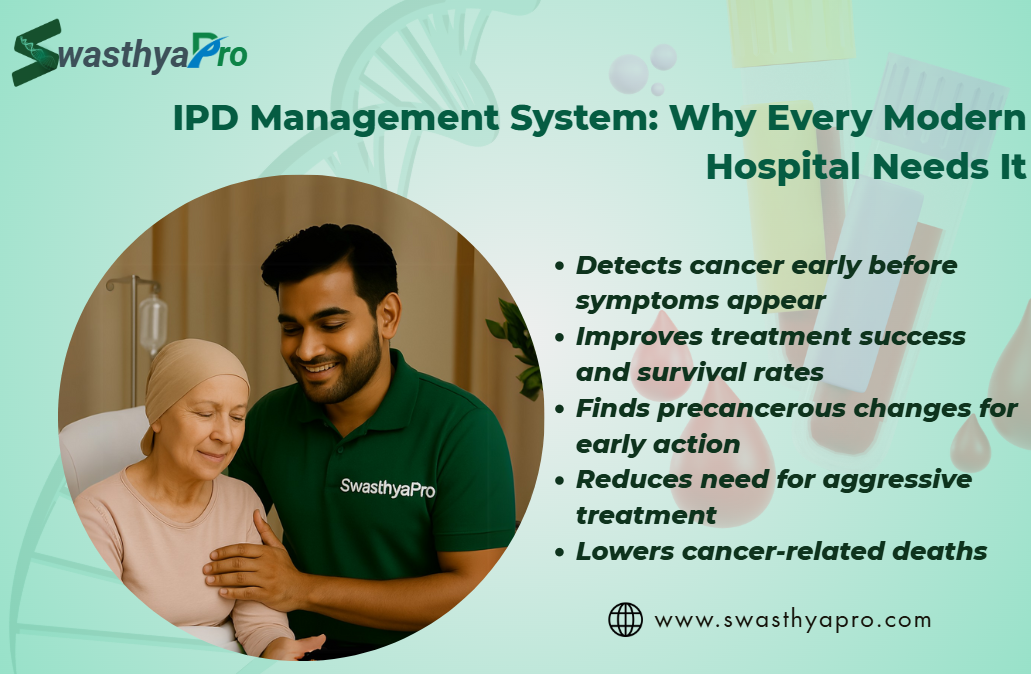IPD Management System: Why Every Modern Hospital Needs It

The modern healthcare landscape is becoming increasingly complex, with rising patient expectations, heavy administrative workloads, and the constant demand for improved quality of care. To keep up with these challenges, hospitals must move beyond outdated manual processes. This is where an IPD Management System plays a vital role. By digitizing inpatient department workflows, hospitals can streamline operations, reduce errors, and deliver better patient experiences.
What is an IPD Management System?
An IPD Management System is a digital platform designed to manage the complete functioning of an inpatient department. From patient admission and bed allocation to treatment tracking, billing, and discharge, this system brings all critical processes under one centralized solution. It ensures real-time data sharing between doctors, nurses, administrators, and patients, making hospital operations more transparent and efficient.
Why Hospitals Struggle Without an IPD Management System
Inpatient care involves multiple touchpoints — admission desks, labs, pharmacies, doctors, and nursing staff. Without a proper system, communication gaps, delays, and errors are common. Manual paperwork can lead to misplaced records, incorrect billing, or delayed treatments.
By contrast, an IPD Management System automates these workflows, ensuring accuracy and consistency. This reduces the administrative burden on staff and improves the overall hospital experience for patients.
Key Features of an IPD Management System
-
Streamlined Admissions and Discharges
The system digitizes admission processes, including registration, insurance verification, and initial assessments. Similarly, discharges are faster with automated billing and record closure. -
Electronic Health Records (EHRs)
An IPD Management System maintains detailed electronic health records, ensuring doctors and nurses always have updated patient histories at their fingertips. -
Bed Management
Real-time dashboards show bed availability, allowing administrators to allocate resources quickly and efficiently. -
Treatment and Medication Tracking
Automated alerts help staff administer medications and treatments on time, reducing the risk of medical errors. -
Billing Integration
The system integrates billing with patient care records, ensuring accuracy and transparency in financial transactions. -
Staff Scheduling
Hospitals can optimize doctor and nurse schedules, reducing fatigue while ensuring proper coverage for patients.
Benefits of an IPD Management System
1. Reduced Errors
Manual processes are error-prone. An IPD Management System minimizes mistakes in medical records, billing, and medication administration.
2. Improved Efficiency
By automating tasks like admissions, discharge, and scheduling, hospitals save time and reduce administrative workloads.
3. Enhanced Patient Safety
Timely alerts for medication, treatments, and checkups ensure patients receive accurate and consistent care.
4. Better Communication
Doctors, nurses, and families can access real-time updates through centralized records, improving trust and collaboration.
5. Cost Optimization
An IPD Management System helps hospitals utilize resources more effectively, reducing waste and unnecessary expenses.
How an IPD Management System Supports Hospital Management
Hospital administrators face the challenge of balancing quality care with operational efficiency. An IPD Management System provides them with the tools to manage inpatient care seamlessly. Administrators can monitor patient flow, track resources, oversee billing, and manage staff from one platform.
Doctors gain quick access to patient histories, while nurses benefit from automated reminders. Patients and families enjoy transparent communication, creating a more trustworthy healthcare environment.
Challenges in Implementing an IPD Management System
While the benefits are clear, hospitals often face hurdles in adopting new systems. High setup costs, staff training requirements, and integration with existing systems can pose challenges. However, these are short-term issues. Once implemented, the long-term advantages of an IPD Management System far outweigh the initial obstacles.
The Future of IPD Management Systems
The next generation of IPD Management System platforms will integrate artificial intelligence, predictive analytics, and IoT devices. These advancements will allow hospitals to forecast patient inflows, predict treatment outcomes, and manage resources more effectively.
For example, AI could help predict which patients are at risk of complications, allowing doctors to intervene early. Wearables might continuously send patient health data to the system, ensuring real-time monitoring.
Why Every Modern Hospital Needs an IPD Management System
The healthcare industry is shifting toward patient-centered care and operational excellence. Hospitals that rely on outdated systems risk inefficiency, errors, and patient dissatisfaction. An IPD Management System is no longer a luxury — it is a necessity. It empowers hospitals to handle increasing patient demands, improve treatment quality, and stay competitive in a digital healthcare environment.
Conclusion
An IPD Management System is the foundation of smarter hospital management. By automating admissions, treatment tracking, billing, and discharge, it enhances efficiency, reduces errors, and ensures better patient outcomes. It also empowers doctors, nurses, and administrators with real-time data, enabling them to make informed decisions quickly.
In today’s world, every modern hospital needs an IPD Management System to succeed. It not only transforms inpatient care but also ensures hospitals remain future-ready in a rapidly evolving healthcare landscape.
- Art
- Causes
- Best Offers
- Crafts
- Dance
- Drinks
- Film
- Fitness
- Food
- Oyunlar
- Festival
- Gardening
- Health
- Home
- Literature
- Music
- Networking
- Other
- Party
- Religion
- Shopping
- Sports
- Theater
- Wellness



